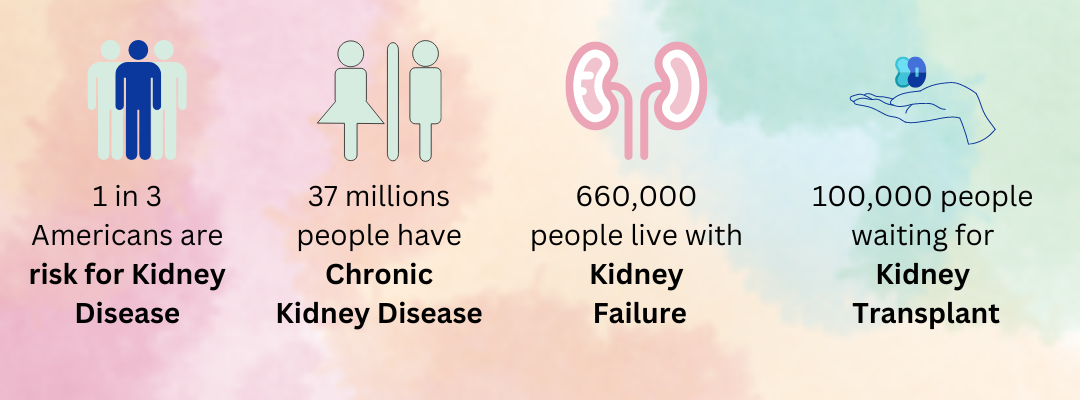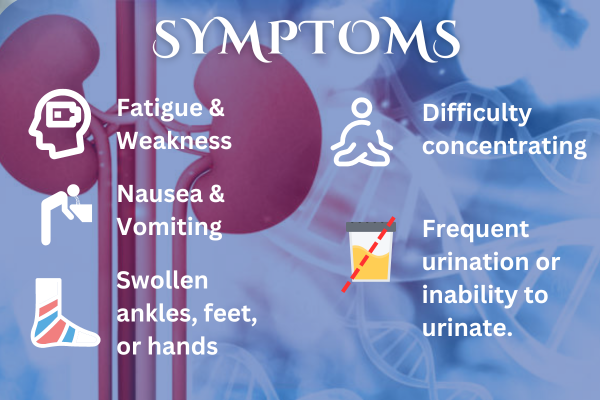
Kidney disease is a major health concern that affects millions of Americans. In the United States. 1 in 3 Americans are at risk for kidney disease, which is an alarming statistic. Furthermore, 37 million people have chronic kidney disease, and a staggering 660,000 individuals live with kidney failure.

Causes of Kidney Disease –
- Diabetes.
- High blood pressure
- Glomerulonephritis (inflammation of the kidney’s filtering units)
- Polycystic kidney disease (inherited condition)
- Recurrent kidney infections
Symptoms of Kidney Disease –
Kidney disease often has no symptoms, but as it progresses, one may experience:
- Fatigue and weakness
- Nausea and vomiting
- Swollen ankles, feet, or hands
- Difficulty concentrating
- Frequent urination or inability to urinate.

Risk Factors –
- Family history
- Obesity
- Smoking
- Older age
- Certain ethnic backgrounds

Prevention and Early Detections –
- Most patients in the early stages of kidney disease need to limit the amount of sodium in their diet. Some patients may be told to limit protein in their diet as well. The DASH (Dietary Approaches to Stop Hypertension ) diet is often recommended for patients with kidney disease. Be sure to talk with your healthcare provider about your specific nutrition needs.
- Controlling diabetes, high blood pressure.
- Regular check-ups and screening tests especially for those at high risk
Diagnosis and Treatment –
Kidney disease is diagnosed through blood tests, urine tests, and/or imaging tests. The various treatment options available, include:
- Medication to control underlying conditions e.g., diabetes, high blood pressure.
- Dietary changes like limiting protein, sodium, and potassium intake.
- Dialysis for advanced kidney disease.
- Kidney transplant for end-stage kidney failure.
Visit Honey Pediatrics & Family Medicine, Dallas, Plano, TX, for comprehensive kidney health screenings and personalized care to maintain optimal kidney function.
Reference:
https://www.kidney.org/kidneydisease/facts
https://www.niddk.nih.gov/health-information/kidney-disease/kidneys-how-they-work
https://www.niddk.nih.gov/health-information/kidney-disease/causes
https://www.kidneyfund.org/kidney-disease/chronic-kidney-disease-ckd/symptoms/
https://www.cdc.gov/kidneydisease/publications-resources/risk-factors.html
https://www.kidney.org/atoz/content/kidneytests
https://www.mayoclinic.org/diseases-conditions/kidney-disease/diagnosis-treatment/drc-20352539
https://www.kidney.org/prevention




